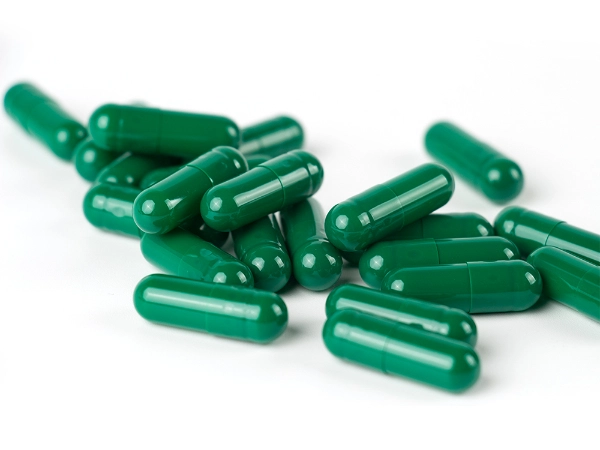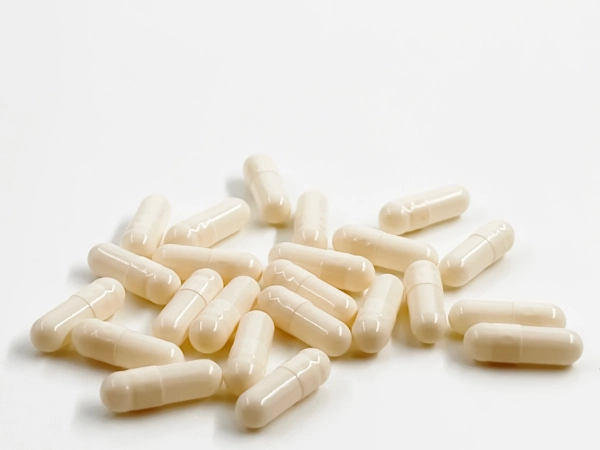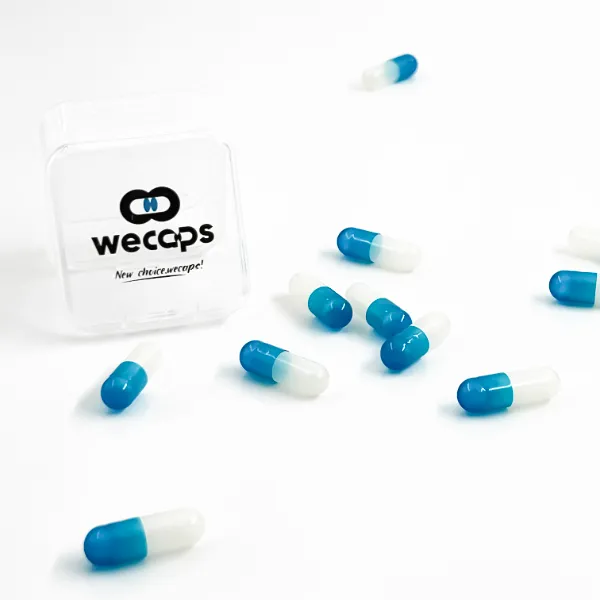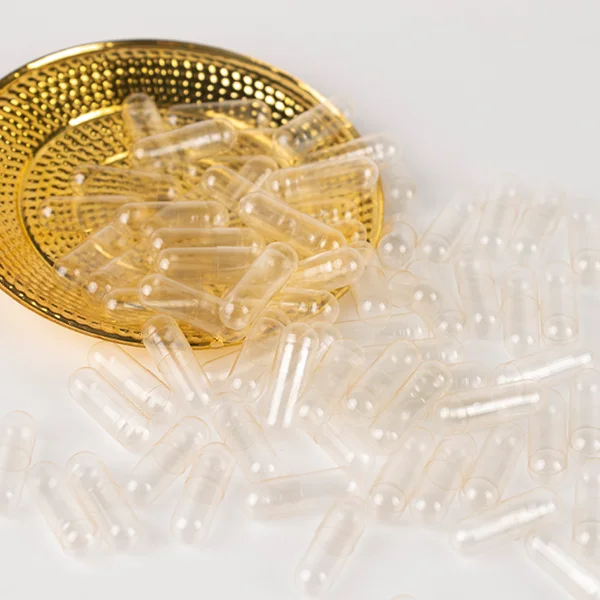In Vitro Dissolution Testing of HPMC Vegetarian Capsules
Article source:Wecaps Aug 14, 2024 1055
Hydroxypropyl methylcellulose (HPMC) capsules are widely used in the pharmaceutical and nutraceutical industries. HPMC is a cellulose derivative that is non-animal derived, has a low water content, and is compatible with a variety of active pharmaceutical ingredients (APIs). In this blog post, Wecaps will share with you the in vitro dissolution test of HPMC vegetarian capsules, focusing on the key considerations and methods.
Physicochemical Properties of HPMC Capsules
HPMC is a semi-synthetic polymer derived from cellulose, characterized by its ability to form films and gels. The polymer structure of HPMC is composed of repeating glucose units, where some hydroxyl groups are substituted with methoxy and hydroxypropyl groups. The degree of substitution and molecular weight of HPMC influence the solubility, viscosity, and film-forming properties of the capsules.
HPMC capsules generally exhibit lower moisture content compared to gelatin capsules, which makes them less prone to cross-linking and other moisture-related issues. However, this also means that HPMC capsules may have different dissolution characteristics, particularly in low-moisture environments.
Importance of In Vitro Dissolution Testing
In vitro dissolution testing is a critical quality control measure used to ensure the consistent performance of oral dosage forms. For HPMC capsules, dissolution testing helps to assess the release profile of the encapsulated API and to predict the in vivo behavior of the dosage form. This is particularly important for modified-release formulations, where the dissolution rate must be carefully controlled to achieve the desired therapeutic effect.
The dissolution behavior of HPMC capsules can be influenced by several factors, including the polymer composition, capsule fill material, and test conditions. Therefore, a robust dissolution testing method is essential to accurately evaluate the performance of HPMC capsules.

Methodologies for In Vitro Dissolution Testing of HPMC Capsules
The dissolution testing of HPMC capsules typically follows the guidelines outlined in pharmacopeias such as the United States Pharmacopeia (USP) and the European Pharmacopoeia (Ph. Eur.). The choice of dissolution apparatus, medium, and test conditions should be carefully considered based on the specific characteristics of the HPMC capsule and the API.
1. Dissolution Apparatus
The most commonly used dissolution apparatus for HPMC capsules is the USP Apparatus 1 (basket method) and USP Apparatus 2 (paddle method). Both methods involve immersing the capsules in a dissolution medium and agitating the medium to simulate the gastrointestinal environment.
- USP Apparatus 1 (Basket Method): In this method, the capsules are placed in a wire mesh basket that is rotated in the dissolution medium. The basket method is particularly useful for capsules that have a tendency to float, as the basket keeps the capsule submerged in the medium.
- USP Apparatus 2 (Paddle Method): The capsules are placed directly in the dissolution medium, and a paddle is used to stir the medium at a controlled speed. This method is widely used due to its simplicity and ability to accommodate different types of dosage forms.
2. Dissolution Medium
The choice of dissolution medium is critical for accurately simulating the in vivo environment and ensuring the reproducibility of the dissolution test. For HPMC capsules, the dissolution medium typically consists of aqueous solutions such as purified water, simulated gastric fluid (SGF), or simulated intestinal fluid (SIF).
- pH Considerations: The pH of the dissolution medium can significantly impact the dissolution rate of HPMC capsules. HPMC is generally soluble in water and acidic media, making SGF (pH 1.2) a common choice for testing immediate-release formulations. However, for modified-release formulations, it may be necessary to use a medium with a higher pH, such as SIF (pH 6.8), to simulate the intestinal environment.
- Surfactants: In some cases, surfactants such as sodium lauryl sulfate (SLS) may be added to the dissolution medium to enhance the solubility of the API or to better simulate the presence of bile salts in the gastrointestinal tract.

3. Test Conditions
Several test conditions can influence the dissolution behavior of HPMC capsules, including temperature, agitation speed, and sample size.
- Temperature: The dissolution test is typically conducted at 37°C, which is representative of human body temperature. However, it is important to ensure that the temperature remains consistent throughout the test to avoid variability in the dissolution rate.
- Agitation Speed: The speed at which the dissolution medium is agitated can affect the rate at which the HPMC capsule dissolves. For USP Apparatus 1, the basket is typically rotated at 50-100 rpm, while for USP Apparatus 2, the paddle is rotated at 50-75 rpm. The optimal agitation speed should be determined based on the specific formulation and capsule type.
- Sample Size: The number of capsules tested should be sufficient to ensure statistically significant results. Typically, six capsules are tested in each dissolution run, with the results averaged to provide a dissolution profile.
To ensure accurate dissolution testing, it is essential to carefully monitor the gel formation process and to select appropriate test conditions that accurately reflect the intended release profile of the formulation.
In vitro dissolution testing of HPMC vegetarian capsules requires careful consideration of the unique properties of HPMC as well as the specific characteristics of the API and formulation. By selecting the appropriate test method, dissolution media, and testing conditions, the dissolution behavior of HPMC capsules can be accurately evaluated and consistent product performance can be ensured.





